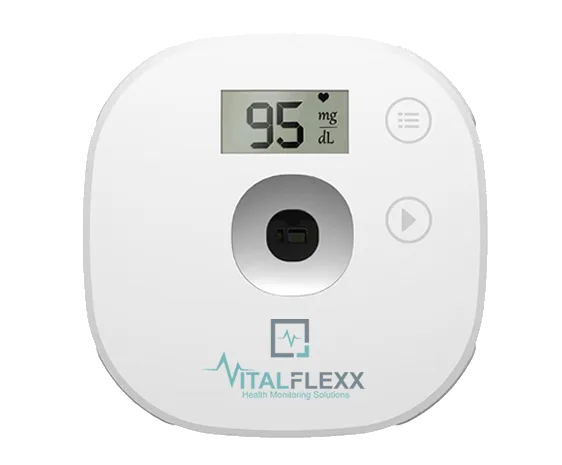Join Our Blog!
Sign up below to get the latest from our Blog and Newsfeed!

Probiotic Supplements: What You Need to Know About the Good Bacteria in Your Gut
Probiotic Supplements: What You Need to Know About the Good Bacteria in Your Gut
Probiotics are live microorganisms that can provide various health benefits when consumed in adequate amounts. These beneficial bacteria are found in certain foods, like yogurt and kefir, as well as in supplement form. Probiotic supplements come in a variety of strains, each with its unique benefits. So whether you're looking to improve your gut health, boost your immune system, or simply maintain a healthy digestive system, probiotic supplements are a convenient way to add good bacteria to your diet.
Understanding Probiotics and Their Benefits
Probiotics are beneficial bacteria that help to maintain a healthy balance of microorganisms in the gut. This balance of good bacteria can help to promote overall health and wellness. For example, research has shown that probiotics can help with digestive issues, such as diarrhea and irritable bowel syndrome, and may also help to boost the immune system and prevent certain types of infections.
Types of Probiotic Supplements
Many different probiotic supplements are available, each with its unique strain of beneficial bacteria. Some of the most commonly used strains include Lactobacillus, Bifidobacterium, and Streptococcus thermophilus.
Lactobacillus is one of the most common strains of probiotics and is found in many dairy products, including yogurt and kefir. This strain is commonly used to help with digestive issues and may also help to boost the immune system.
Bifidobacterium is another common strain of probiotics and is found in some dairy products, as well as in some supplements. This strain is often used to help improve gut health and may also help to prevent certain types of infections. Streptococcus thermophilus is a less common strain of probiotics but has been shown to be effective in helping digestive issues and boosting the immune system.
Health Benefits of Probiotic Supplements
Probiotics are live microorganisms that have been shown to have numerous health benefits when consumed in adequate amounts. As a result, probiotic supplements are becoming increasingly popular to improve gut health, boost the immune system, and support overall well-being. In this article, we will explore the health benefits of probiotic supplements and the scientific research that supports these benefits.
Gut Health
One of the main benefits of probiotics is improved gut health. Probiotics help to maintain the balance of good bacteria in the gut, which can improve digestive function and reduce symptoms of digestive disorders such as irritable bowel syndrome (IBS), inflammatory bowel disease (IBD), and constipation.
A study published in the journal Alimentary Pharmacology & Therapeutics found that probiotics can reduce the symptoms of IBS, including bloating, gas, abdominal pain, and diarrhea [1]. Another study published in the World Journal of Gastroenterology found that probiotics can reduce the symptoms of IBD, including abdominal pain, diarrhea, and rectal bleeding.
Immune System
Probiotics have also been shown to affect the immune system positively. Probiotics can stimulate the production of antibodies and white blood cells, which help to fight off infection and disease. Probiotics can also help to prevent the growth of harmful bacteria and yeasts in the gut, reducing the risk of infections.
A study published in the British Journal of Nutrition found that probiotics can increase the production of antibodies and white blood cells, leading to improved immune function [2]. Another study published in the journal Nutrients found that probiotics can reduce the risk of respiratory infections in children [3].
Mental Health
In addition to their physical health benefits, probiotics have also been shown to have a positive impact on mental health. Probiotics can improve mood, reduce stress and anxiety, and improve cognitive function. For example, a study published in the Journal of Clinical Psychology found that probiotics can reduce symptoms of depression and anxiety [4]. Another study published in Brain, Behavior, and Immunity found that probiotics can improve mood and reduce stress.
Buying Guide
When purchasing probiotic supplements, choosing a high-quality product containing a diverse range of probiotic strains is important. Look for a product containing at least 10 billion CFUs (colony-forming units) per serving and a range of probiotic strains, such as Lactobacillus and Bifidobacterium.
It is also important to consider the form of the probiotic supplement, as the body better absorbs some forms than others. Capsules and powders are the most common forms of probiotic supplements, but some people may prefer to take probiotics in the form of a drink or food.
How to Choose the Right Probiotic Supplement
When choosing a probiotic supplement, it's important to consider the type of bacteria that it contains. You should also look at the supplement's potency and the number of colony-forming units (CFUs) per serving. CFUs measure the number of live bacteria in a supplement; the higher the number, the more potent the supplement.
It's also important to choose a probiotic supplement that has been tested for purity and potency and is free from contaminants. Finally, consider the form of the supplement, as some forms, such as capsules and powders, may be easier to take than others.
The Importance of Probiotics
In addition to taking probiotic supplements, it's also important to consume prebiotics, which are non-digestible fibers that serve as food for the beneficial bacteria in the gut. Some of the best sources of prebiotics include fruits, vegetables, and whole grains. By consuming a diet rich in prebiotics, you can help support the growth of beneficial bacteria in the gut and maintain a healthy balance of microorganisms.
The Bottom Line
Probiotic supplements can provide various health benefits, from improving digestive health to boosting the immune system. When choosing a probiotic supplement, it's important to consider the type of bacteria it contains, the potency of the supplement, and its purity and potency. Additionally, by consuming a diet rich in prebiotics, you can support the growth of beneficial bacteria in the gut and maintain a healthy balance of microorganisms. If you're interested in trying probiotic supplements, be sure to speak with your doctor.
References
"Probiotics for the Prevention and Treatment of Antibiotic-Associated Diarrhea: A Systematic Review and Meta-Analysis." NCBI, U.S. National Library of Medicine, National Institutes of Health, ncbi.nlm.nih.gov/pmc/articles/PMC4367209/.
"The Effect of Probiotics on Immune Regulation, Acne, and Photoaging." NCBI, U.S. National Library of Medicine, National Institutes of Health, ncbi.nlm.nih.gov/pmc/articles/PMC5569648/.
"Probiotics for Preventing Acute Upper Respiratory Tract Infections." NCBI, U.S. National Library of Medicine, National Institutes of Health, ncbi.nlm.nih.gov/pmc/articles/PMC4951068/.
"The Effects of Probiotics on Mental Health: A Systematic Review." NCBI, U.S. National Library of Medicine, National Institutes of Health, ncbi.nlm.nih.gov/pmc/articles/PMC5869014/.

Sign Up for Our Newsletter!
How can your Innovative Healthcare products assist in your remote patient monitoring, point of care, or chronic care management programs?
NAVIGATION
SOCIAL
HEADQUARTERS (US)
HEALTHFLEXX, Inc
607 W 77th St South Dr
Indianapolis, IN 46260
P: 888.243.9102
E: support@healthflexxinc.com
All Rights Reserved 2026. HEALTHFLEXX, Inc

LinkedIn
Youtube